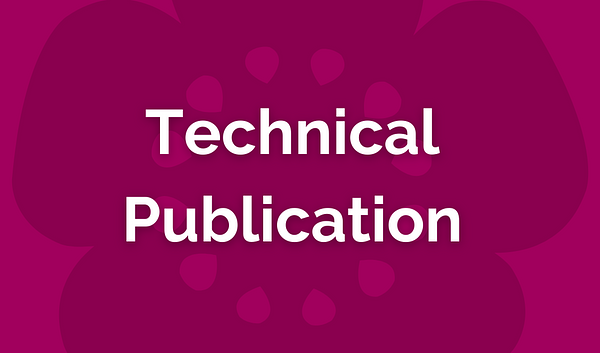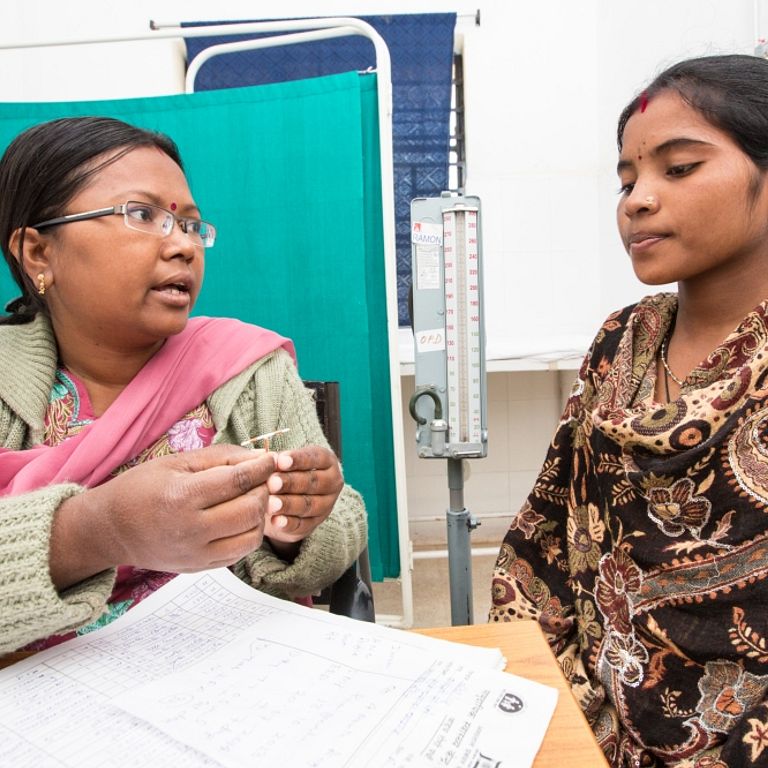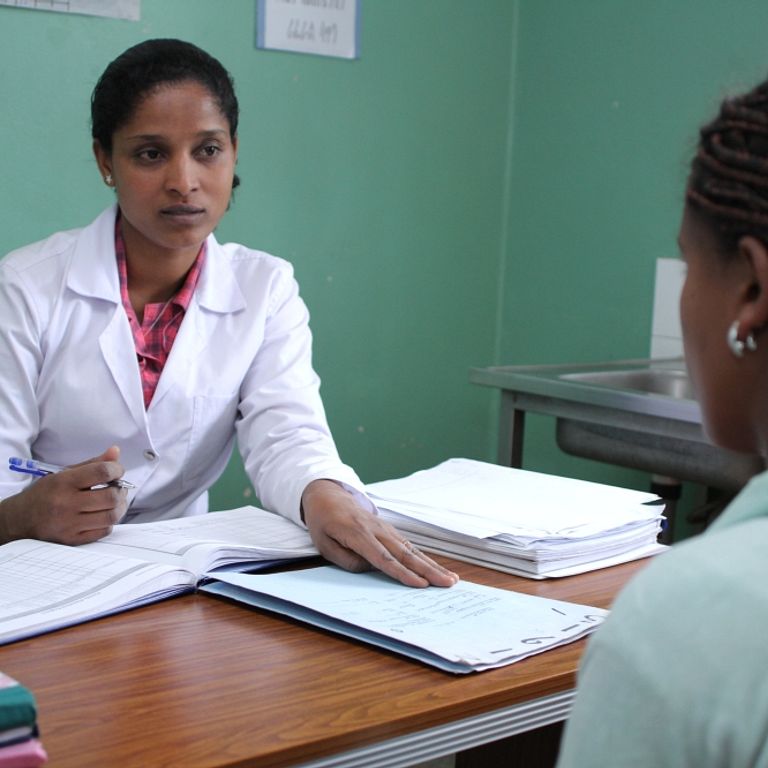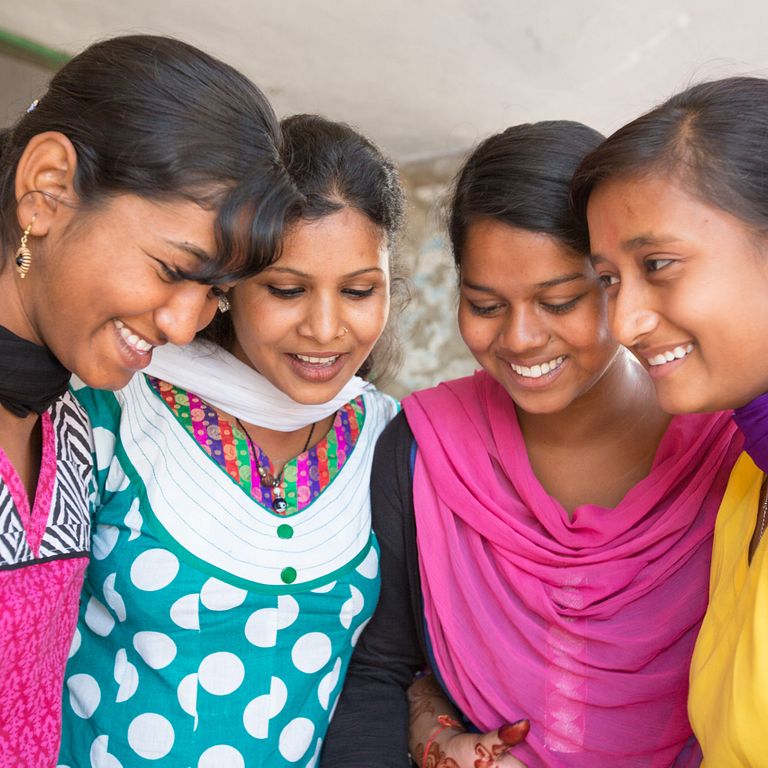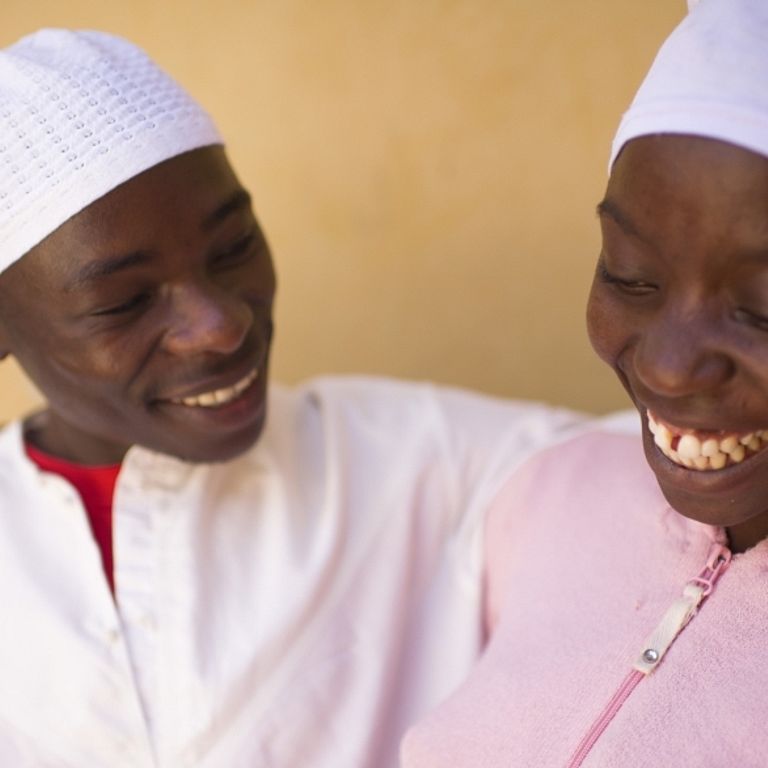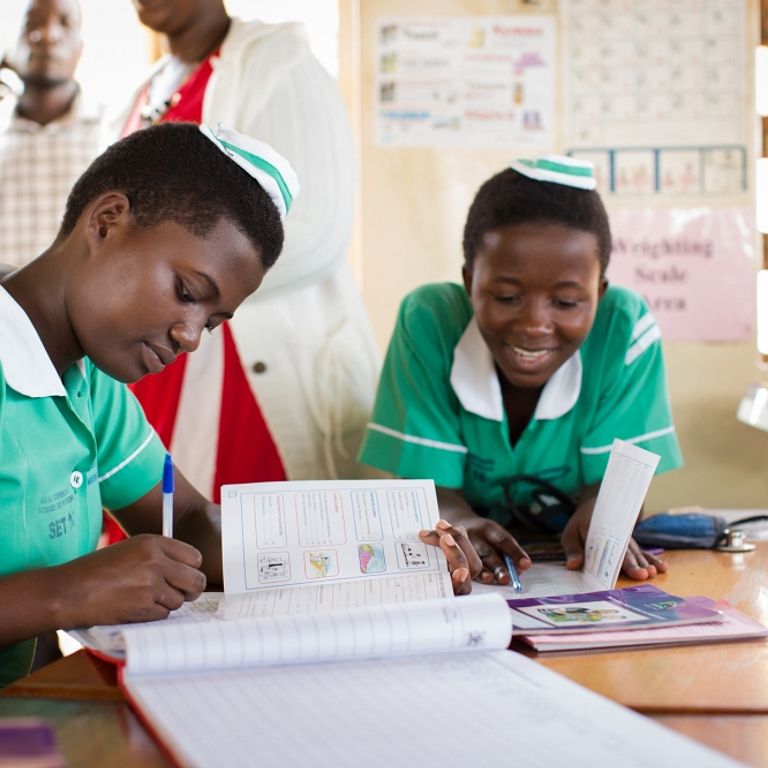A’Ago

According to FP2030, the unmet need for family planning among married women is 21.5% in Ethiopia. Though incredible gains in SRH have been made elsewhere in Ethiopia, among pastoralists there is far less uptake of SRH and maternal health services.
EngenderHealth and consortium partners Amref Health Africa, Philips Health Africa, and Triggerise worked to improve the SRH status of young people in Afar—particularly pastoralists. The A’Ago program began in Afar and over time expanded to include increasing access to comprehensive abortion care (CAC), including postabortion family planning (PAFP) services in Amhara, Oromia, and SNNPR (Southern Nations, Nationalities, and People’s Region) as well as a partnership with Afar Development Association to expand community engagement services in Afar.
To increase access to high-quality SRH services, we trained staff on pharmaceutical logistics systems and midwives, clinical nurses, and other mid-level service providers in comprehensive contraception to improve the integration of PAFP with related services at program-supported sites. We integrated gender training throughout the program to ensure that health facility staff are equipped to provide unbiased information and services.

Through a mix of community-based activities, we focused on strengthening meaningful youth participation and addressing gender-based barriers. One way we did this was to incentivize health-seeking behaviors in young people by promoting the use of an app that linked them with SRH services. To support the creation of an enabling environment where young people are able to access SRH services, we trained community agents (a network of women volunteers, and religious and community leaders) on adolescent and youth sexual and reproductive health and rights (SRHR) and how to meaningfully engage with youth.
Over the life of the program, EngenderHealth strengthened SRH services in 93 health posts, 131 public health centers and hospitals, and 36 private health centers. The program also expanded comprehensive SRH education by supporting 21 primary schools, 10 secondary schools, and 3 higher education institutes as well as 38 out-of-school structures, including youth advisory parliaments, youth clubs, and community youth groups, and 516 women development teams. Overall, we trained 1,963 health workers and 3,585 health extension workers and renovated 40 health facilities. Project-supported providers and facilities reached approximately 257,571 young people with comprehensive SRHR information and delivered preferred modern contraceptive methods to 216,169 women and girls.
